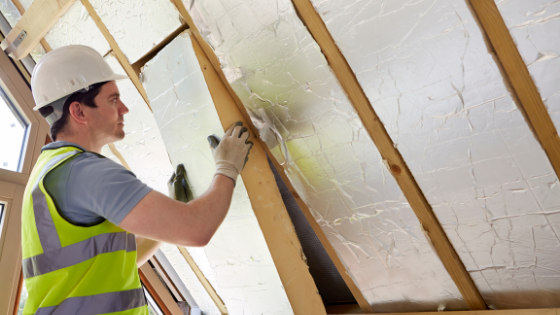
Reduce Noise In Your Home
Whether it is plane overhead, street traffic, a loud neighbour, or your own kids, our homes are not as quiet and peaceful as we would like them to be!
Soundproofing your home has a lot of benefits to your stress levels but also the value of your home. Noise can be annoying when it comes into the house through windows, the basement and the attic. Noise from inside your home can also be annoying to your neighbours, as well as others in your home.
Use this handy checklist to determine what your problem areas are and consult a professional!
Windows
Windows are the most common way for noise to get in or out. Single glass panes and wood window frames are the least resistant to noise. Double pane glass can reduce noise by about 20 per cent, while vinyl frames can reduce it by as much as 50 per cent.
If replacing the window with a double pane glass or vinyl frames is too expensive an option, consider using a “removable” plug to block the sound coming through the window. A plug will also block light, but it will make little difference if it’s your bedroom window and the noise is keeping you awake at night.
And let’s not forget the added benefits — the extra insulation of a plug will keep you warmer in winter and cooler in summer.
Attic
Many attics, especially in older homes, lack insulation. Adding insulation can not only help cut down on your heating bills, but it can help to soundproof your home. Materials used to insulate your home also help reduce noise.
Entrances
In well-built homes, you’ll notice that doors in a hallway don’t line up across from each other. This is to prevent sound from travelling across and through the open doors. Staggering entrances is one way of minimizing noise.
Tips
At least 25% of a room should have some absorbent material, like carpeting or furniture, to reduce reverberation from footsteps.
Rooms located right over living areas should have some form of carpeting for soundproofing. Special carpet padding and floorings are available for use in soundproofing, but these tend to be more expensive. Often, a thick rubber padding and carpet are all you need.
